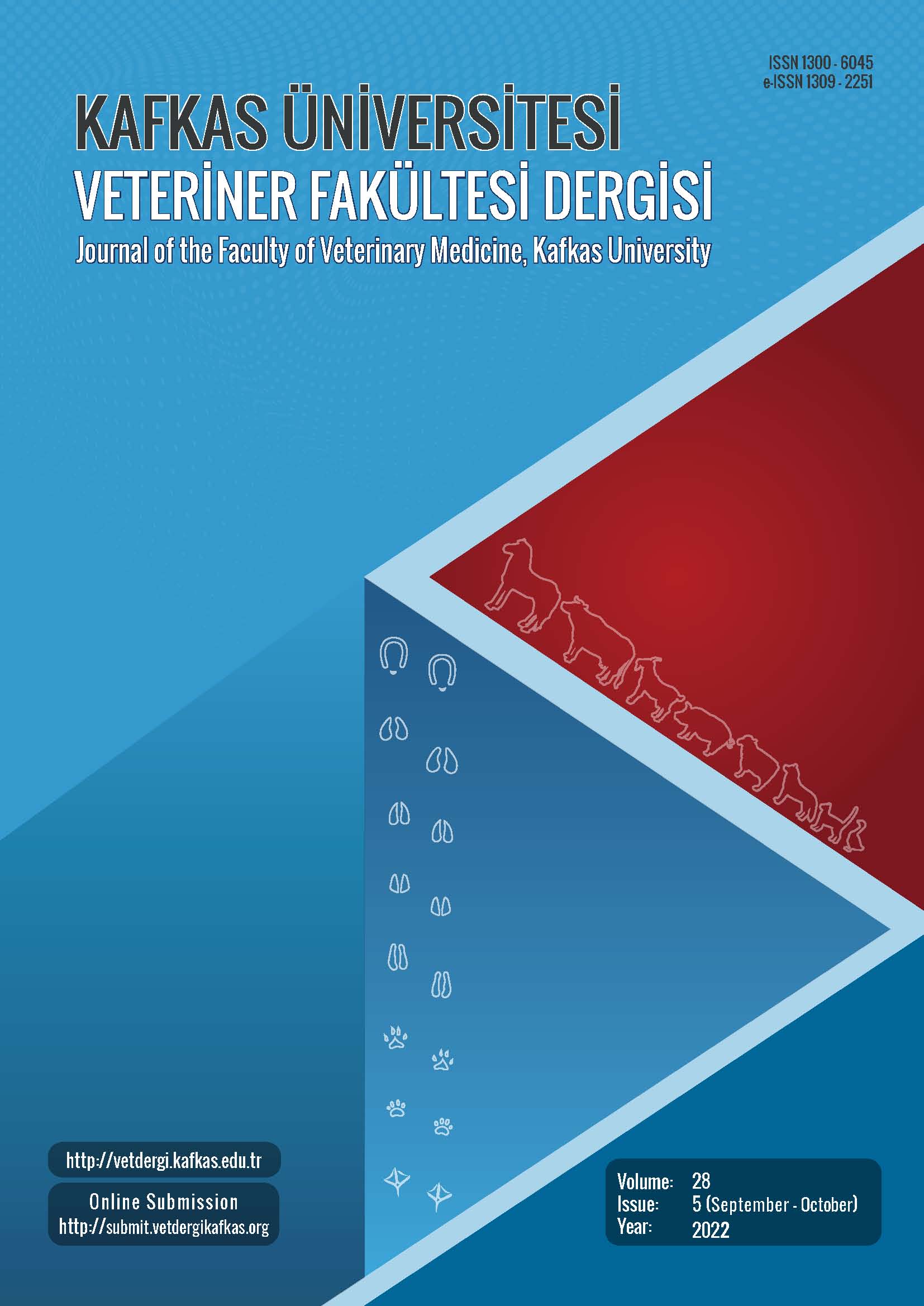
This journal is licensed under a Creative Commons Attribution-NonCommercial 4.0 International License
Kafkas Üniversitesi Veteriner Fakültesi Dergisi
2022 , Vol 28 , Issue 5
Cerebroprotective Effects of Yizhitongmai Granule and Decomposed Recipes on Vascular Dementia Rats Via the Nod-like Receptor Protein 3 Infl ammasome Pathway
1Department of Traditional Chinese Medicine, Shandong Provincial Hospital Affiliated to Shandong First Medical University, Jinan 250021, Shandong Province, CHINA
DOI :
10.9775/kvfd.2022.27531
We aimed to evaluate the cerebroprotective eff ects of Yizhitongmai Granule and its decomposed recipes on vascular dementia
(VD) rats via the Nod-like receptor protein 3 (NLRP3) infl ammasome pathway. Sixty rats were randomly divided into Sham, VD Model,
Yizhitongmai Recipe, Bushen Recipe, Tongluo Recipe and positive control groups (n=10). From 12 d aft er operation, Yizhitongmai Recipe,
Bushen Recipe and Tongluo Recipe groups were gavaged with corresponding drug liquid. Th e drugs were administered at 2 mL once a day
for 28 consecutive days. Th e reactive oxygen species (ROS), superoxide dismutase (SOD), total antioxidant capacity (T-AOC) and lactate
dehydrogenase (LDH) in hippocampal tissues were detected using biochemical methods. Tumor necrosis factor-α (TNF-α), interleukin-18
(IL-18) and IL-1β were detected by enzyme-linked immunosorbent assay. Western blotting was performed to detect the expression levels
of neuronal growth-associated protein-43 (GAP43), synaptophysin (SYN), aquaporin 4 (AQP4), NLRP3 and Caspase-1. Compared with
the Model group, the number of apoptotic cells, levels of ROS, LDH, TNF-α, IL-18, IL-1β, NLRP3 and Caspase-1 decreased, and the levels
of SOD, T-AOC, GAP43, SYN and AQP4 increased in the Yizhitongmai Recipe, Bushen Recipe and Tongluo Recipe groups (P<0.05).
However, the Bushen Recipe and Tongluo Recipe groups had similar indices (P>0.05). Compared with the Bushen Recipe and Tongluo
Recipe groups, the Yizhitongmai Recipe group had fewer apoptotic cells, decreased levels of ROS, LDH, TNF-α, IL-18, IL-1β, NLRP3 and
Caspase-1, and increased levels of SOD, T-AOC, GAP43, SYN and AQP4 (P<0.05). Yizhitongmai Granule and its decomposed recipes can
protect hippocampal neurons, relieve oxidative stress and infl ammatory response caused by hypoperfusion brain injury.
Keywords :
Brain protection, Infl ammasome, Nod-like receptor protein 3, Oxidative stress, Vascular dementia











